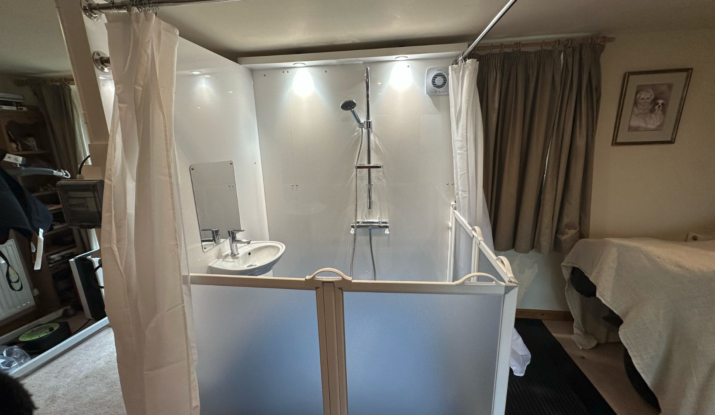We’re currently working with Local Authorities (LA) up and down the country and it’s clear to us that there are a host of procurement routes that are being used to buy our WashPod modular disabled wetrooms. I thought I’d share our experiences as it may help others navigate their way through the complexities of the disability grants available to help with adaptations.
- Firstly, there’s the Disabled Facilities Grant (DFG) which lends itself to our internal models which come well within the cap. The Internal Compact is particularly popular as it’s wheelchair accessible and one LA customer only uses this model as it quickly ticks a lot of boxes for them. They can easily re-use the WashPod, time and time again, using our Turnaround Service, which saves them precious funds each time, while Dignity Access provides the rapid installation, removal and storage as required.
- Secondly, there’s using underspent budget at the end of the year. One of our customers bought two External Compacts at the end of the financial year with underspent funds. The inner sleeve of the External can also be used independently, giving them plenty of internal or external siting options. In the meantime, we can store them until they’re needed.
- One LA buys our more expensive external models through the Procurement for Housing (PfH) Dynamic Purchasing System which we’re registered on. If you are using this DPS, it might be helpful for you too or let us know if you’d like us to register on another one.
- Another LA is renting a WashPod for a child under a totally different budget. Here, the social worker involved got funding agreed though their Children with Disabilities social care team as the WashPod’s monthly rental was equivalent to the taxi bill that they were paying to take the child to the local leisure centre for her showering.
- The latest variation has seen the purchase of 4 internal models (2 Mini and 2 Compact WashPods) with money from the Hospital Discharge Fund which will help this LA get patients back home from hospital quicker, so improving their recovery and freeing up much needed beds.
It’s useful to understand how a Housing Assistance Policy (HAP) can help improve flexibility in the use of disability grants and discretionary payments as I’m sure there will be other creative ways of funding home adaptations such as wetrooms. Certainly, if the need is for relatively short-term solutions, then those described above are already tried and tested.
Please contact us if you would like to know more. Email: info@dignityaccess.co.uk or visit our website www.dignityaccess.co.uk. You can also contact Foundations, the Government’s advisory body that can help you navigate “bureaucratic hurdles, tight budgets, and complicated procedures that cause delays and frustration for both you and the people you’re trying to help.”

